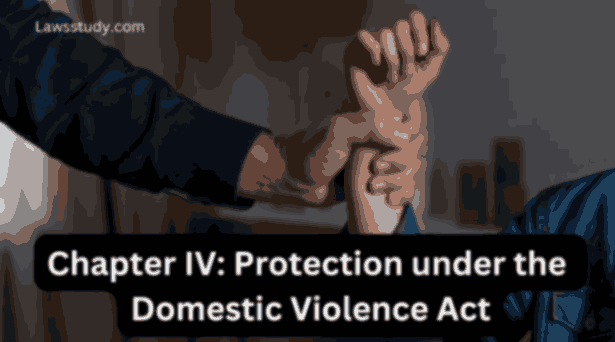Chapter IV: Protection under the Domestic Violence Act
Introduction
Enacted as a pivotal social measure, the Domestic Violence Act serves as a shield for women against various forms of domestic abuse. It stands as a testament to the commitment to safeguarding women’s rights within familial confines.
Encompassing physical, sexual, verbal, emotional, and economic abuses, the Act extends its protective reach comprehensively. Enforced by the Central Government and the Ministry of Women and Child Development since October 26, 2006, it stands as a beacon of hope for those in need of recourse against domestic violence.
Objective of the DV Act
Enacted with a clear aim, the Domestic Violence Act seeks to provide a solution that harmonizes the civil rights of the aggrieved individual. Its primary goal is to offer a civil remedy, safeguarding women from domestic violence and working towards its prevention in society.
Chapter IV of the DV Act
Section 12: Application Procedure
Within Chapter IV of the DV Act lies the structured procedure for obtaining relief orders, encapsulated in Sections 12 to 29. Section 12 grants the authority to the aggrieved person, the Protection Officer, or any designated representative to file an application before the Magistrate seeking redressal.
Section 19: Residence Orders
Moving forward, Section 19 grants authority to the Magistrate to issue residence orders, constituting a crucial relief provision within the DV Act. These orders may include diverse measures like restraining the respondent from interfering with the aggrieved person’s possession, instructing the respondent to evacuate the shared household, or even prohibiting the respondent or their relatives from accessing specific areas within the shared household where the aggrieved person resides.
Monetary Relief Provisions under Section 20 of the DV Act
Under Section 20 of the Domestic Violence Act, the Magistrate holds the authority to grant various monetary reliefs. These encompass compensations for lost earnings, medical expenses incurred, losses resulting from the destruction, damage, or removal of property from the aggrieved person’s control, and maintenance provisions for both the aggrieved person and any dependent children.
Section 21: Custody Determination
Section 21 of the Domestic Violence Act confers upon the Magistrate the authority to make decisions regarding custody.
Section 22: Compensation for Injuries
Section 22 empowers the Magistrate to award compensation and damages for injuries inflicted, encompassing mental anguish and emotional suffering resulting from domestic violence.
Section 23: Interim Ex Parte Orders
Furthermore, Section 23 vests the Magistrate with the power to issue interim ex parte orders. These provisions collectively highlight the civil nature of the various reliefs attainable by the aggrieved person.
conclusion
In essence, the Domestic Violence Act serves as a vital safeguard against various forms of domestic abuse, offering comprehensive protection to women. Through its structured procedures and relief provisions outlined in Chapter IV, it empowers aggrieved individuals to seek redressal for their grievances. From obtaining relief orders to addressing custody, compensation, and interim measures, the Act strives to harmonize civil rights while combatting domestic violence effectively.
Frequently asked questions
Who can apply for relief orders under Chapter IV of the Domestic Violence Act?
Relief orders under Chapter IV can be sought by the aggrieved person, the Protection Officer, or any designated representative authorized to act on behalf of the aggrieved person.
What are interim ex parte orders, and who can issue them according to the DV Act?
Interim ex parte orders, as outlined in Section 23, are temporary orders issued by the Magistrate without the presence of the respondent. They serve to provide immediate protection to the aggrieved person.

























